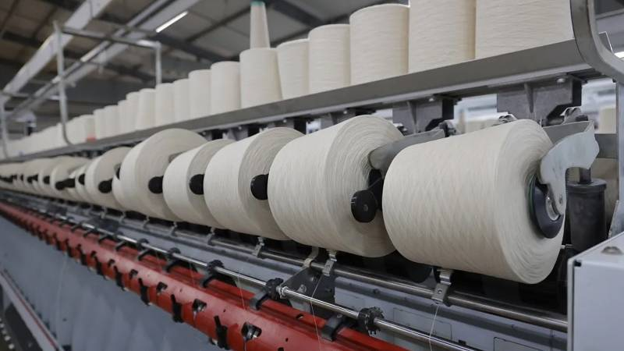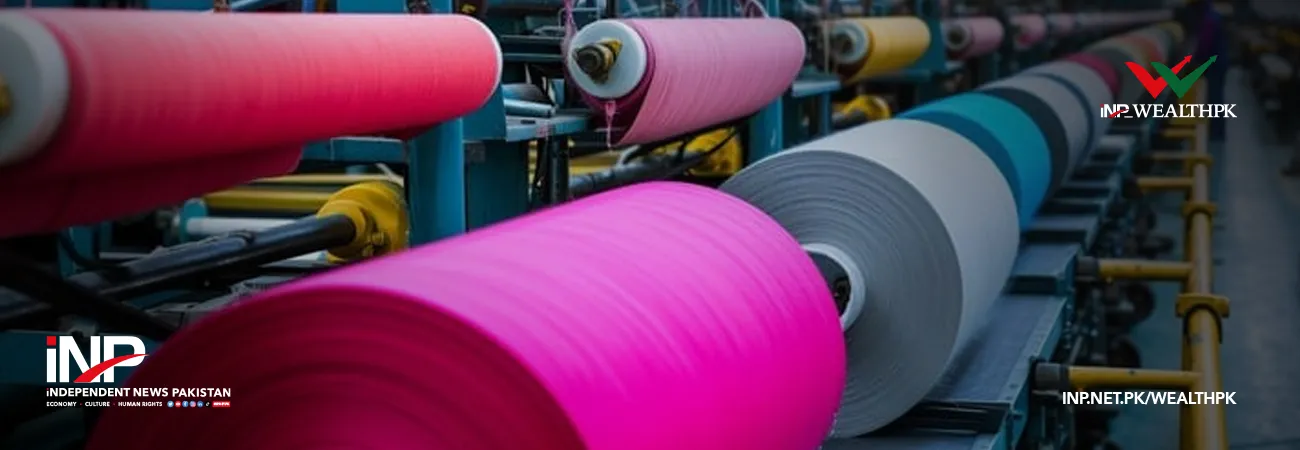INP-WealthPk
Moaaz Manzoor
The government has outlined a plan to move Pakistan’s textile and apparel industry toward low-carbon, resource-efficient, and socially responsible production, aiming to align the country’s industrial framework with global sustainability standards. The initiative forms a major component of the proposed Textile and Apparel Policy 2025–30, which focuses on circularity, inclusivity, and environmental stewardship across the textile value chain.
According to the draft Textile and Apparel Policy 2025–30 available with Wealth Pakistan, the government plans to establish a National Strategy on Sustainable and Circular Textiles to align the sector with Sustainable Development Goals, national climate commitments, and emerging international requirements for eco-design, traceability, and industrial decarbonization.
The policy calls for the Ministry of Commerce, in collaboration with the Ministry of Climate Change, the Securities and Exchange Commission of Pakistan, and provincial environmental protection departments, to develop mechanisms for environmental, social, and governance disclosures by the textile and apparel industry. These disclosures will cover greenhouse gas emissions, energy use, waste management, and other environmental indicators in accordance with global protocols and regulations.
To promote green industrial investment, the State Bank of Pakistan will develop a Pakistan Green Taxonomy framework to direct financial flows toward climate-resilient and sustainable projects. The framework will guide commercial banks and financial institutions to expand financing for renewable energy adoption, energy efficiency, and water conservation in industrial operations.
The draft policy further proposes that the Ministry of Climate Change and the Ministry of Commerce, through the Export Development Fund and international donor programs, provide targeted grants to industries investing in cleaner production methods. These grants will support initiatives such as industrial decarbonization, circular economy projects, clean energy installations, and technology upgrades aimed at reducing pollution and waste of resources.
The document also recommends that the Federal Board of Revenue introduce fiscal incentives for industries complying with globally recognized environmental and energy standards. Companies certified under systems such as LEED, ISO 50001, and ISO 14001 will be encouraged through tax relief to adopt sustainable manufacturing practices, reduce their carbon footprint, and improve energy and water efficiency.
The proposed framework also highlights the importance of inclusivity and equitable participation in the textile workforce. The Trade Development Authority of Pakistan will organise specialised training programs for women and persons with disabilities to promote diversity in the sector. It will also facilitate their participation in trade exhibitions and global networking events, creating new employment and entrepreneurial opportunities.
To improve workplace conditions, the policy directs the Ministry of Commerce and the Ministry of Overseas Pakistanis and Human Resource Development to establish guidelines for responsible and ethical business conduct. These will ensure fair wages, occupational safety, non-discrimination, and grievance mechanisms at the factory level. The initiatives aim to strengthen Pakistan’s compliance with international labor conventions and maintain its eligibility for trade preferences under schemes such as the European Union’s GSP+.
The policy describes sustainability as a key factor in maintaining the long-term competitiveness of Pakistan’s textile exports. It notes that international buyers increasingly demand compliance with sustainability and transparency requirements, and that meeting these standards is essential to maintain global market access and strengthen Pakistan’s reputation as a responsible sourcing destination.
The draft concludes that adopting low-carbon and resource-efficient production will improve Pakistan’s industrial resilience, create new export opportunities, and contribute to national efforts for climate adaptation. It emphasizes that achieving these goals will require coordination among the government, financial institutions, and private sector stakeholders to ensure full implementation of sustainability commitments across the textile and apparel value chain.

Credit: INP-WealthPk









